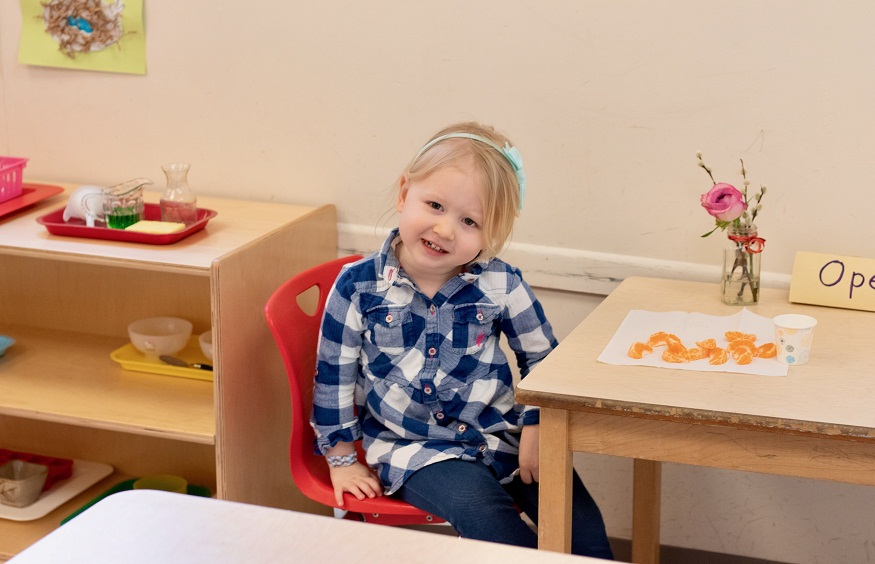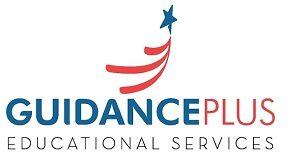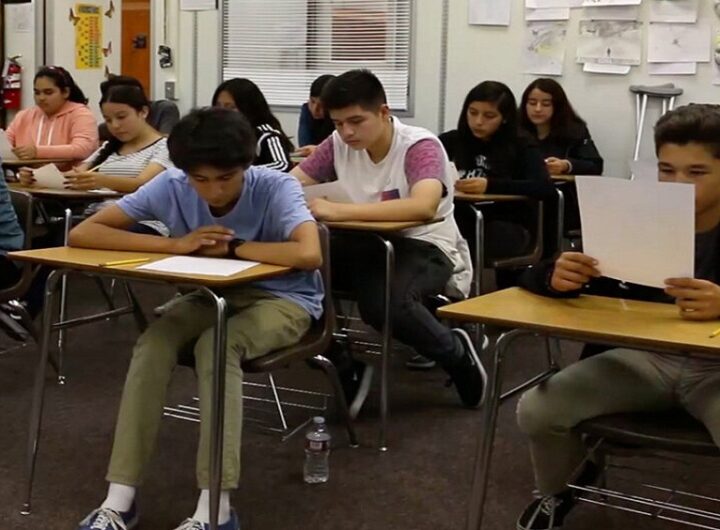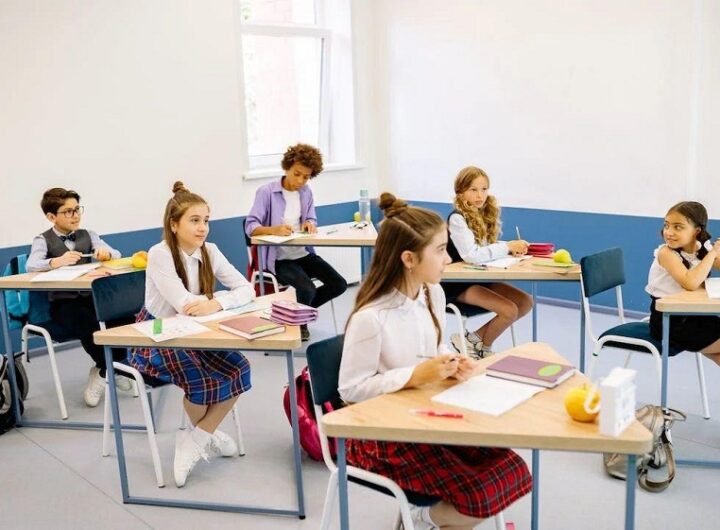
When it comes to early childhood education, parents often wonder if it’s too soon to enroll their two-year-olds in school. In New Jersey, a variety of schools offer structured programs specifically designed for toddlers, providing more than just babysitting. These schools focus on developing essential cognitive, social, and emotional skills, setting a strong foundation for lifelong learning.
Enrolling your two-year-old in a New Jersey school can be incredibly beneficial, not just for your child’s immediate development but also for their long-term growth. Below, we explore the top benefits of starting early and enrolling your toddler in a school designed for their age group.
1. Cognitive Development
At the age of two, children are like sponges—absorbing vast amounts of information from their surroundings. A school environment provides them with the opportunity to explore new concepts and ideas through play, which is one of the most effective ways for children to learn at this stage. Structured activities such as puzzles, matching games, and storytelling help build critical thinking and problem-solving skills, even at such a young age.
Teachers at school for 2 year olds NJ are trained to stimulate curiosity in ways that foster cognitive development. By using creative and engaging activities, they help children develop their memory, attention span, and ability to process new information. In a school setting, children are introduced to numbers, shapes, colors, and letters in ways that encourage their natural love for learning.
2. Social Skills and Interaction
Socialization is a key benefit of enrolling your child in a school at age two. In a classroom setting, children learn how to interact with their peers, understand social norms, and practice empathy. Toddlers begin to learn the importance of sharing, taking turns, and respecting others’ space. These lessons in social behavior are critical for preparing children for future educational experiences and life in general.
For many children, school is the first place where they interact with peers of the same age. These early social interactions help them learn how to build friendships, navigate conflicts, and cooperate in group settings. New Jersey schools for two-year-olds also often incorporate structured group activities like circle time, which fosters a sense of community and teamwork from an early age.
3. Emotional Development
Emotional development is another significant benefit of early school enrollment. In a supportive school environment, children learn how to identify and express their emotions in healthy ways. They are taught emotional regulation techniques, such as how to calm themselves when they are upset or frustrated. This is especially crucial for two-year-olds, who are often still developing language skills and may find it difficult to express their feelings verbally.
Teachers in New Jersey schools help children work through emotional challenges by encouraging open communication and validating their feelings. This helps build a child’s emotional intelligence, which is vital for their overall well-being and future relationships. A nurturing environment, with the presence of empathetic caregivers, ensures that children feel secure while they navigate their emotions.
4. Physical Development
Toddlers are in a stage of rapid physical growth, and schools designed for two-year-olds provide ample opportunities for physical development. Many New Jersey schools incorporate outdoor playtime, fine motor skill activities, and gross motor skill exercises into their daily routines. These activities are not just about letting children expend energy; they are designed to improve coordination, balance, and strength.
Simple tasks such as building with blocks, finger-painting, or even climbing on playground equipment can significantly enhance fine and gross motor skills. Structured physical activities help children develop their hand-eye coordination, agility, and overall body awareness. A school environment provides the space and supervision necessary for these activities to occur in a safe and beneficial way.
5. Routine and Structure
At the age of two, children thrive on routine. A school environment offers a predictable schedule that helps children feel secure and understand what to expect throughout the day. This structure is beneficial because it teaches children time management, patience, and the importance of transitioning from one activity to the next.
New Jersey schools for two-year-olds typically follow a well-organized daily schedule that includes time for learning, play, meals, and rest. This helps children adapt to routines, which are critical for developing a sense of security and reducing anxiety. When children know what comes next, they are more likely to feel in control of their environment, which positively impacts their behavior and focus.
6. Language Development
Language development is one of the most significant milestones for two-year-olds, and being in a school setting can accelerate this growth. Through daily interactions with teachers and peers, toddlers have the opportunity to expand their vocabulary and practice sentence structure. Activities like reading stories, singing songs, and participating in group discussions are designed to enhance language skills.
Teachers in New Jersey schools often use engaging, age-appropriate methods to promote language learning. They ask open-ended questions, encourage toddlers to describe their feelings, and introduce new words through fun activities. These interactions help children build both receptive (understanding) and expressive (speaking) language skills, making them better communicators as they grow older.
7. Independence and Confidence Building
One of the key goals of early childhood education is to foster independence and self-confidence. A school environment provides toddlers with the opportunity to practice making decisions, solving problems, and completing tasks on their own. Whether it’s choosing which toy to play with or figuring out how to put on their jacket, these small moments of independence help build confidence.
Teachers encourage children to try new things and celebrate their successes, no matter how small. As toddlers accomplish tasks on their own, they begin to develop a positive self-image and a “can-do” attitude. This confidence serves them well as they move through future stages of education and life.
8. Preparing for Preschool
Enrolling your two-year-old in a New Jersey school also serves as an excellent way to prepare for preschool. By starting early, children become accustomed to the school environment, making the transition to preschool much smoother. They already understand basic classroom routines, how to interact with peers, and how to follow instructions from teachers.
This early exposure reduces separation anxiety and boosts a child’s readiness for more structured learning environments later on. Children who attend school at two are often better prepared for the challenges and opportunities that preschool will bring.
Conclusion
Enrolling your two-year-old in Monarch Montessori School NJ is one of the best ways to support their growth and development. From cognitive and social skills to physical and emotional development, the benefits are numerous. Early schooling at Monarch Montessori School NJ lays the groundwork for lifelong learning, confidence, and well-being, giving your child a head start in their educational journey.

 Understanding the Impact of Leadership Turnover on School Stability
Understanding the Impact of Leadership Turnover on School Stability  Why is sport an important part of the international school curriculum?
Why is sport an important part of the international school curriculum?  Know How To Secure Admission In Top UK Universities: Tips For Overseas Applicants
Know How To Secure Admission In Top UK Universities: Tips For Overseas Applicants  Tech Industry Myths That Might Be Holding You Back
Tech Industry Myths That Might Be Holding You Back  Top 6 Professional Courses After 12th Arts To Build A Strong Career Foundation
Top 6 Professional Courses After 12th Arts To Build A Strong Career Foundation  Learn AI, ML, and Analytics: Data Science Classes in Pune
Learn AI, ML, and Analytics: Data Science Classes in Pune